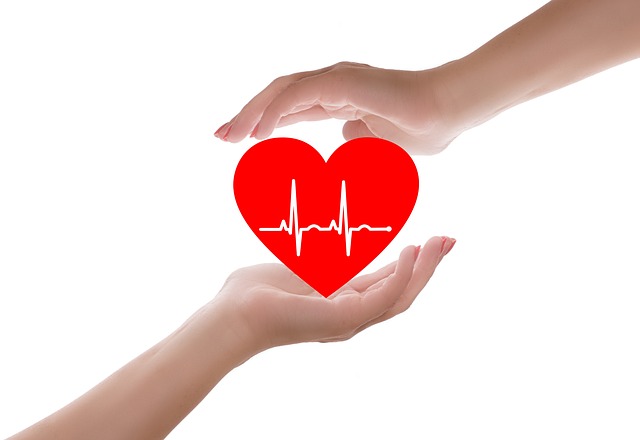A cardiac arrest occurs when your heart stops beating or beats so fast that it stops pumping blood. People often collapse and become unresponsive during cardiac arrest. . For this reason, it is often referred to as sudden cardiac arrest. If you don't get prompt treatment, the situation can turn deadly.
What are the causes of cardiac arrest
1. Irregular heart rhythms called arrhythmias cause cardiac arrest.
2. Children who have suffered from suffocation or drowning may suffer cardiac arrest after experiencing apnea (when breathing stops).
3. Sometimes the cause of a cardiac arrest is not known.
4. Sometimes an activity or behavior causes cardiac arrest. Possible triggers include:
1. Heavy emotional stress in the previous month.
2. Influenza infection in the previous month.
3. Physical exertion or stress.
What are the symptoms of a heart attack
- crash.
- no pulse.
- don't breathe.
- Unconsciousness.
- Chest discomfort.
- shortness of breath.
- But sudden cardiac arrest often happens without warning.
When cardiac arrest is suspected due to signs of loss of consciousness or abnormal breathing, bystanders should attempt to feel a pulse for 10 seconds; If no pulse is felt, it should be assumed that the victim is in cardiac arrest. As a result of loss of cerebral ischemia (blood flow to the brain), a person quickly loses consciousness and may stop breathing. Near-death experiences are reported by 10 to 20 percent of people who survive cardiac arrest, which indicates some level of cognitive processes that are still active during resuscitation.
What are the emergency treatments for cardiac arrest?
Steps to help a person in cardiac arrest are listed below.
- Whether you notice someone on the ground, see if they can be revived by shouting at them or tapping their body. Check for pulse and respiration. Call 9-1-1 for help if the person is not breathing properly and is not responding.
- Start CPR.
- Give the patient a shock to restart their heart by following the AED's vocal instructions.
- Emergency treatment of cardiac arrest that may occur due to an opioid overdose should include the administration of naloxone. Naloxone is a drug carried by first responders. If you are trained to administer naloxone and the patient is known to be at risk for an opioid overdose, you can treat it before emergency personnel arrive.
- Continue to perform CPR until emergency personnel arrive and take over. In addition to performing CPR, emergency personnel may perform additional shocks with an AED to correct the patient's irregular heartbeat. In addition, they may provide medications through an intravenous (IV) line.
Prevention of heart attack
There are many factors that can increase the risk of having a heart attack. Some severe risks can't be controlled, but there are many factors you can control.
1. Your heart's worst enemy is cholesterol. High cholesterol can clog your arteries and increase your risk of heart attack. Try to reduce your intake of salt, saturated fats, and added sugars. Eat plenty of fruits, green vegetables, and whole grains.
2. Cigarette smoking can raise blood pressure, and the risk of heart attack increases the risk. According to studies, smokers are more likely to have a heart attack. He decided to quit smoking.
3. Aerobic exercise has a variety of advantages, one of which is that it promotes blood circulation, thus promoting heart health. It also helps maintain weight. Your heart will benefit from 15 to 20 minutes of exercise each day.
4. Sleep deprivation and difficulty sleeping increase the rate of heart failure. You are more susceptible to disease if your sleep patterns are irregular. A person usually needs seven to eight hours of sleep each night to maintain his health. When it comes to heart health, you should make sure you get enough sleep.
Cardiac arrest versus heart attack
- Cardiac arrest occurs when the normal rhythm of your heart is overrun by a fast, abnormal heartbeat. There is an electrical problem.
- Heart attacks occur when blocked arteries prevent blood from reaching your heart. The most common cause of cardiac arrest is a heart attack.
Cardiopulmonary arrest in children
The most common cause of cardiopulmonary arrest in children is trauma or untreated respiratory failure. Arrhythmia is not the most common cause in children. Where there is an arrhythmia it is often asystole or bradycardia, as opposed to ventricular fibrillation or tachycardia as seen in adults. Other causes can include drugs such as cocaine and methamphetamine or an overdose of drugs such as antidepressants in a previously healthy child who now has an abnormal heart rhythm that has progressed to cardiac arrest. Common causes of sudden unexplained cardiac arrest in children include hypertrophic cardiomyopathy, coronary artery disease, and arrhythmias.

Comments
Post a Comment